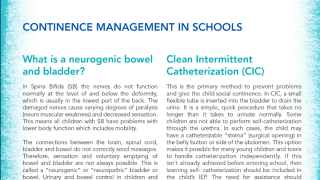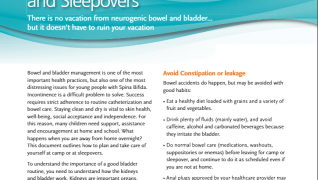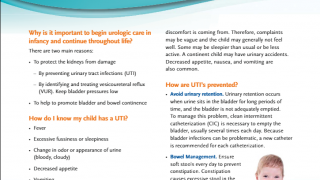The transition to urologic care signals the gradual shifting of responsibility from the parent to the child and is a critical step that prepares young adults for independent lives.
Although urological problems may not be present before the transition, social and behavioral issues may arise. For this reason, urologic care transition should be done slowly and mindfully. It is important to know your child’s interests, limits, and habits. Monitor your child’s activities, particularly after augmentation surgery, when potentially devastating problems can occur such as stretching the bladder or a bladder rupture.
This information sheet covers:
- The necessary elements of effective urologic self-care
- Bladder concerns such as bladder stones, bladder rupture, and bladder tumors
- Barriers that hold some teens back from taking control of their self-care regimen
This information does not constitute medical advice for any individual. As special cases may vary from the general information presented here, SBA advises readers to consult a qualified medical or other professional on an individual basis.
Tags



